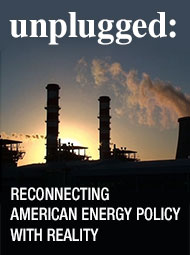As a long-time and loyal UGA fan, I don’t usually make tide references. But the image occurred to me after reading up on some state developments concerning deregulated electricity markets. State leaders and citizens are increasingly asking questions about whether or not deregulation is all it’s cracked up to be, and most importantly, how it affects consumers. The boldest statements have come in the Commonwealth of Massachusetts, where last month, Attorney General Maura Healey released a report condemning the state’s competitive retail electricity market. While the report was influenced by a $5 million settlement against one company charged with deceptive
|
|
|
Online recommendations
Apr 20 2018 PACE got a taste of warm weather, sunshine and BBQ last week, visiting with Cobb EMC, a progressive urban/suburban electric cooperative just outside Atlanta that serves over 200,000 meters. Cobb’s board and leadership team are responding adeptly to consumer demand for renewable energy by making significant investments in utility-scale solar. PACE also visited the Southern States Energy Board (we joined SSEB earlier this year) to discuss energy and environmental issues that are top-of mind to the elected officials in SSEB’s sixteen state, two territory membership. Returning to D.C., I found that with Easter recess in the rearview mirror, the springtime Mar 08 2018 PACE submitted public comments this week to the Bureau of Ocean Energy Management, supporting the proposed expansion of leasing regions. Energy leadership is needed now more than ever, for consumers at home - and to shore up America’s leadership in the world. Laura Marshall Schepis Executive DirectorPartnership for Affordable Clean Energy 8409 Lee Highway, #2547 Merrifield VA 22116 March 8, 2018 Ms. Kelly Hammerle, National OCS Oil & Gas Leasing Program Manager Dr. Jill Lewandowski, Chief, Division of Environmental Assessment Bureau of Ocean Energy Management 45600 Woodland Road Sterling VA 20166 RE: Draft Proposed 2019-2024 OCS Oil & Feb 02 2018 Yesterday, PACE commentary was featured in Morning Consult. The content of our op-ed, part of a continuing focus on harmful and misguided energy divestment and defunding campaigns, is below. Environmental activists, driven by self-interests and profoundly mistaken beliefs about financial markets and energy policy, are pressuring citizens, public officials and corporate boards to abandon profitable investments in energy companies. These activists promote divestment and claim its implementation will save the environment. The reality, though, is that divestment is a poor solution for tackling the climate challenges that lay ahead. In fact, divestment simply doesn’t work, failing virtually everywhere it’s Jan 11 2018 On Friday, the Florida Constitution Revision Commission will once again examine deregulation of the wholesale and retail electricity markets. PACE will testify, as we did in December, to share our views and research on why deregulation doesn’t work for consumers. Dear Chair Thurlow-Lippisch: Thank you for reconvening the General Provisions Committee on January 12 for a portion of the morning to further discuss Proposal 51. The Partnership for Affordable Clean Energy will appear again in order to shed light on why Florida should not enshrine complex electricity policy in its Constitution and explain why the Texas electricity market isn’t Jan 09 2018 The great majority of U.S. citizens east of the Mississippi have engaged in popular January 2018 conversations – first, “it is so, so [insert profanity of choice] cold outside.” In the greater D.C. metropolitan area, that is quickly followed by “why are the [choose another profanity] schools closed AGAIN?” Involuntary confinement to home offices has allowed energy policy observers to freely opine on the impacts of winter storms and the deep-freeze. Articles and blogs are piling up like … While “Deep Freeze 2018” (there isn’t yet a catchy “Polar Vortex” phrase for this event, and “snow bomb” doesn’t apply Jan 02 2018 With champagne flutes and noisemakers safely stored away, many of us turn to making New Year’s resolutions. These vary widely, but usually have one thing in common – we select them and measure success or failure ourselves. Wise partners and friends know to give advice only if asked. In short, one size doesn’t fit all, and mandates backfire. Over the holiday break, I was reminded that local officials should adopt this same approach when it comes to one of the most important transactions that a family encounters – buying or selling a home. Lots of ink has already been devoted Nov 28 2017 Earlier this year, PACE shared some thoughts about deregulation of the electric power retail markets and why it doesn’t make sense for consumers. With state legislatures across the country gearing up for 2018 sessions, it seems timely to touch on the topic again. When it comes to deregulating (or restructuring) retail electricity markets, the song remains the same. Nearly two decades of experimentation, creation of complicated behemoth markets and establishment of cumbersome oversight mechanisms has rarely, if ever, produced meaningful cost savings or competition. Pushed by giant casinos and renewable advocates, Nevada’s Public Service Commission has recently created a new Nov 14 2017 The nation’s regulatory utility commissioners are gathered in Baltimore, Maryland for their 129th annual meeting. I’m pleased to represent PACE and raise awareness about our partnerships all across the country and our mission of driving policies that deliver reliable, affordable energy to consumers. It’s not just the brisk, wintry temperatures here in Baltimore keeping attendees focused on where consumers will get their energy and what it will cost. Several sessions across the 4 days of meetings delve into these important questions. The Solar Energy Industries Association (SEIA) convened an early morning breakfast yesterday to discuss the pending Federal Trade Commission Oct 31 2017 Today PACE welcomes a guest blog from our Board Chairman, Cline Jones. Cline is the Executive Director of the Tennessee River Valley Authority and its associated organization, the Tennessee-Cumberland Waterways Council. As the calendar pages turn, and the end of 2017 draws near, it’s timely to assess progress on one of our country’s most important goals – maintenance and improvement of infrastructure. The Tennessee River Valley Association (TRVA) and the Tennessee-Cumberland Waterways Council (TCWC) bring together business and industry, transportation, financial services, education, chambers of commerce, all levels of government and many other stakeholders. Our |
|
|
Copyright © 2018 | (PACE) Partnership for Affordable Clean Energy | A 501(c)(4) Organization | All Rights Reserved Privacy Policy | Photo Credits |
|





